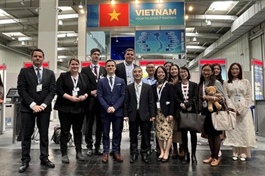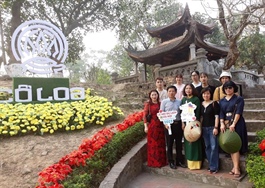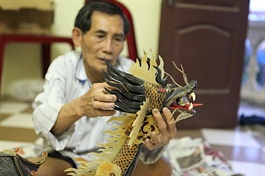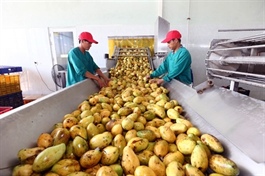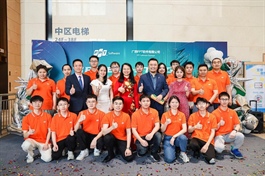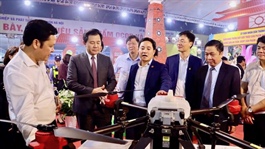Scope existing for semiconductor gains
Scope existing for semiconductor gains
Vietnam is becoming an Asian hub for global semiconductor manufacturers, as shown by its decent export turnover in the region.

Along with Thailand, India, and Cambodia, Vietnam has led a significant increase in semiconductor chip exports to the United States so far this year, accounting for more than 10 per cent of US imported chips.
US semiconductor chip imports reached $4.86 billion in February 2023. Asia accounted for 83 per cent of the total semiconductor chips imported by the US, according to US Census Bureau data.
Also in February, Vietnam’s semiconductor chip exports to the US reached $562.5 million, up from $321.7 million in February 2022. Vietnam ranks third in Asia in terms of semiconductor exports to the US, following Malaysia and Taiwan.
Vietnam and Thailand are major players in the semiconductor chip manufacturing market and have seen their trade with the US increase by 75 and 62 per cent, respectively, according to Bloomberg. For seven consecutive months, Vietnam has accounted for more than 10 per cent of the chips imported by the US from around the world.
Last year, Vietnam’s largest foreign investor, Samsung, began work on a $920 million project in the northern province of Thai Nguyen to focus on the trial production of flip-chip ball grid array – a surface-mount packaging technology used for integrated circuits. Samsung Electro-Mechanics described the array as the “most difficult” product to manufacture among semiconductor package substrates, as the high-intensity package substrate connects semiconductor chips and main substrates with flip-chip bumps.
The group plans to begin making semiconductor parts in Vietnam by July, further diversifying its manufacturing as the US, China, and others seek to hone technology supply chains.
Meanwhile, South Korean group Amkor Technology, one of the world’s largest providers of outsourced semiconductor packaging and design, is eager to implement a factory at Yen Phong II-C Industrial Park in the northern province of Bac Ninh.
The investor will pump $1.6 billion into the factory and disbursement will be completed in 2035. The first phase of the project will focus on the production, assembly, and testing of semiconductor materials for the world’s top semiconductor and electronic manufacturers.
Meanwhile, in February, Intel was in the process of considering a significant increase in its existing $1.5 billion investment in the nation as it seeks to expand its chip testing and packaging plant in Vietnam.
The move could be worth an additional $1 billion and would signal a growing role for the country as part of the global supply chain for semiconductors, as companies push to cut reliance on China because of political risks and trade tensions.
“Intel Products Vietnam is a key part of Intel’s worldwide manufacturing presence. As Intel redefines its position in the industry, it will continue to diversify and improve its local operations so that it can take on more complex technologies and new products to tap new market opportunities,” said Kim Huat Ooi, general manager of Intel Products Vietnam.
The semiconductor market value in Vietnam is set to grow by $1.65 billion over 2020-2025, as per a report published in May 2022 by British market research firm Technavio. The growing use of the Internet of Things is driving semiconductor market growth in Vietnam and increasing adoption of smarthome tech will be the key trend soon, the report said.
Due to this potential, many semiconductors keep a keen eye on Vietnam. In January, the US Semiconductor Industry Association (SIA) arrived in Vietnam to survey opportunities in semiconductor production.
SIA president John Neuffer said the US semiconductor industry was working to re-balance the global semiconductor production chain, which combined plans to increase key supply chains from friendly countries. With other countries advancing fast and US semiconductor businesses seeking investment opportunities, Neuffer said he hoped to cooperate with the Vietnamese government, so the country did not miss the opportunity.
According to Deputy Prime Minister Le Minh Khai, the visit was a significant starting point for the connection between the Vietnamese government and SIA.
“The Vietnamese government issued many incentive and support policies to create stronger conditions for investment inflow in terms of high-tech sectors and semiconductor is a priority sector,” DPM Khai said. “Vietnam has also established high-tech centres in Hanoi, Ho Chi Minh City, and Danang with special incentive policies to connect research and development and invest in high-tech and innovation projects.”
Suppliers to Dutch chip-making machines giant ASML Holding NV, a supplier to top global semiconductor manufacturers, are also considering building plants in Southeast Asia, including Vietnam, as opposed to China. The companies participating include Newways, Bestronics, HQ Group, KMWE Group, Sempro, and Sioux Technologies.




